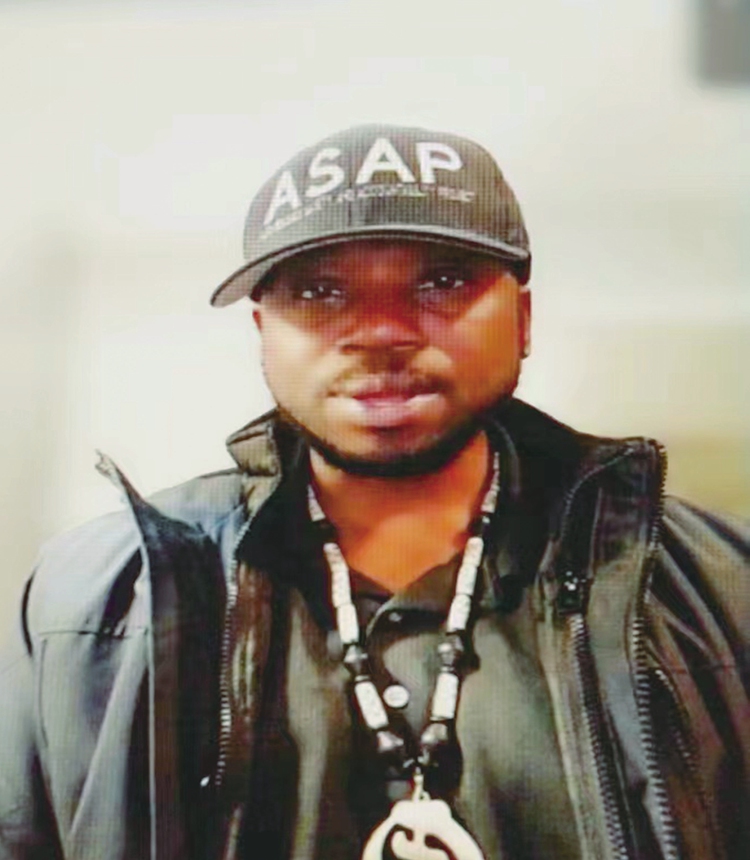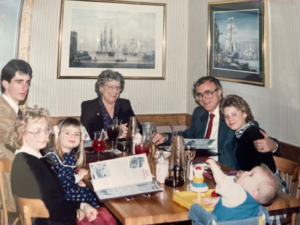Inmate firefighters from Oak Glen Conservation Camp clear vegetation that could fuel a wildfire near a road Photo: VCGEditor’s Note:
“The lowest I got paid was nothing. The highest that I got paid was 75 cents an hour. And then they would take 55 percent of that. If I said no, I would be given another 15 years in prison.” This is how Samual Brown (Brown), who served 24 years in the California state prison, was subject to what he called modern slavery during his incarceration. Although the 13th Amendment to the US Constitution abolished slavery in the US, it has left a loophole regarding involuntary servitude. This makes the US the “empire” of modern slavery. In her I-Talk show, Global Times (GT) reporter Wang Wenwen talked to Brown about his experience of being forced to work in prison and how he fights to try to end slavery inCalifornia by proposing the ACA 3 (The California Abolition Act).
GT: Can you tell me your experience in prison?
Brown: I stayed 24 years in the California prison system. And while I was inside prison, I did a number of jobs, everything from working in the kitchen, to working on the yard, to working in the scullery, to working as a porter, to working as a hospital janitor. I did a number of jobs while I was on the plantation for 24 years.
GT: Do you have a right to say no?
Brown: No, you don’t. They tell you and they tell the public that a person that’s incarcerated has the right to say no, but that’s not the truth. If a person says no, then they will receive 115 or 128 discipline report, which is the equivalent of the modern day whip. It’s what they use to compel people to do things that they otherwise would not want to do. So here in America including the California prison system, slavery has never ended. There is an unbroken lineage of slavery from the inception on this country until this very day. They use disciplinary reports to make people do the jobs. If you get a disciplinary report, it can extend your stay in prison or cause you to lose privileges.
GT: What kind of other measures did they use to force you to work? Was there any torture?
Brown: Let me be careful about how I answer this because I don’t want to say no, there is no torture because the things that they do to a person are already hard on the mind. The prison system in the United States is, they claim, more civilized than (in) like other places, but it’s really hard on the person. It’s hard on the mind, it’s hard on the family.
So, when you talk about a person being tortured, when you have officers who become vindictive, and they make your day-to-day life hard for you. If you don’t want to do the job, they make it difficult for you to get in your assigned cell, get the basic necessities you need, get around the prison or get the smallest things accomplished. That is a form of torture. Torture is not just water boarding or tying somebody up. Torture is also utilizing the processes and the procedures that are available to you to make somebody’s life miserable. That is torture. To sit in prison with a life sentence and never know if, or when, you will make it home no matter how much you change… that is torture. For the record, there are also countless reports of Correctional Officers beating and killing prisoners all across the US. Therefore, to answer your question, yes.
GT: Did you earn any minimum wages or no money at all?
Brown: The lowest I got paid was nothing. Work free. The highest that I got paid was 75 cents an hour. And then they would take 55 percent of that. They claim the 55 percent is for restitution. It is a very cruel system that takes advantage of the incarcerated, their families, and oppressed communities of color: especially black people.
At the time I was earning 75 cents an hour I was what they called an environmental technician, the hospital janitor. My job was to work in the mental ward of the prison where many people who were incarcerated tried to commit suicide. America doesn’t help the homeless, the mentally challenged, or the generationally traumatized. America places them in prison and makes them slaves in their army of Captive Laborers.
Within the prison’s mental ward, in addition to threatening to kill themselves, men injure themselves, smear their blood on the walls, and would often cover the cells and themselves in feces. I had to go in and clean it. If they had COVID-19 or something, I would have to go in and clean it. I was the first person in the state of California to enter inside a cell where someone tested positive for COVID-19 to disinfect it. I was also the first person in the state to enter an office in a carceral setting where the first state employee tested positive for COVID. That’s the kind of stuff that I had to do for 75 cents an hour: risk my life. Because slavery is secretly legal in the US, I could not say no.

Samual Brown Photo: ScreenshotGT: Why did you draft the ACA 3 bill? What’s its purpose?
Brown: ACA 3, the California Abolition Act, is in direct response to the 13th Amendment of the US Constitution. In 1865, at the conclusion of the civil war, the 13th Amendment was ratified, and supposedly the 13th Amendment abolished slavery. That’s the popular story that they tell, but it didn’t abolish slavery. What it did was conditioned slavery, and what it conditioned upon was a social construct known as due process and a subsequent felony conviction.
What the 13th Amendment actually says is slavery and involuntary slavery are prohibited except as punishment for a crime, which means it took slavery off the main street and they put it behind prison gates. So in California, the 13th amendment is Article One, Section Six of the state constitution. California, with over 36 prisons, is the premiere plantation state. These correctional policies rooted in slavery are what drive mass incarceration here in California and the remainder of the United States.
As I just told you, I was the first person in the state to have to go clean those COVID cells. And when I expressed to my supervisors that I would like to come and work every other day and not continue to risk my life with COVID-19, because it was fresh and lots of people were dying in large numbers all around the world, They told me that if I didn’t come to work, I would receive a 1-15 disciplinary report. And I was scheduled to go to the board of parole hearings because I had life in prison. That’s what I was sentenced to.
And so in order to get out, I had to appear before the board of parole hearings. There is an underground regulation that requires a person hoping to go home to not have any disciplinary infractions within at least 5 years. If you don’t have five years clean with no 11-5s or 12-8s, they won’t even consider letting you out of prison. Therefore, I couldn’t afford to receive the 11-5 he threatened me with it. All I could do was return to work. Eventually I did catch COVID. And I almost died. But I remember going back and told my wife, I don’t want to die doing this job. And I wanna appeal that. She was like, can you appeal it? I said I can. But even if I appeal it, the constitution is going to support their argument and they’re gonna win. She said, “Well, let’s change the constitution then.”
I wrote the amendment or the language that became the amendment. She took it to the capital to then assembly member, Sydney Kamlager, who is now Senator Sydney Kamlager. And she authored the bill. So it became a real thing.
We passed it through the California assembly unanimously 59 to 0. We passed it through the senate public safety committee unanimously, the senate elections committee unanimously, and through appropriations unanimously.
When we went up for the senate floor vote, the last vote before we proceed to the ballot, white supremacy reared its ugly head. Some politicians began a campaign of fear mongering and trying to steal the narrative about what the bill was about.
They began telling these false stories about the bill. They claimed the purpose of the bill was make life easy on people who are incarcerated and disregard the rights of victims. They said that this wasn’t about ending slavery. It was just about getting money to prisoners. You know, they lie and they begin to change the narrative, but still, the will of the people to end slavery in California is strong. So the other senators were willing to vote on behalf of the bill.
But when the vote was supposed to take place, I don’t wanna say a filibuster, but they kind of did. They manipulated the procedures and ran the time out of the session so ACA3 never got voted on. The next day, we were supposed to be scheduled for a vote. They stalled us out, because it was the last day of the senate floor session ultimately, it didn’t even get voted on. They used procedure in order to snuff it out at the last minute, which was a terrible decision, because the people in California want to #endslaverynow.
They denied the people their voice and an opportunity to vote on this critical and historical issue. I feel in 2024 its really gonna cost them, because now we’re gonna return more educated, more agitated, more concentrated and dedicated to end the slavery once and for all.
GT: Would you equal this kind of slavery to forced labor? Are they the same?
Brown: One hundred percent. Cause forced labor is slavery. Slavery is to be forced to do a job that you don’t want to do. Forced labor means forcing someone to do a job they don’t want to do. So from involuntary servitude, to forced labor, captive labor, slavery all the same thing.
GT: Were other prisoners forced to work like you? How many of you altogether? And what kind of work did they force them to do?
Brown: According to a report that was put forward by American Civil Liberties Union, the goods that are generated by people who are incarcerated annually is $2 billion. The services that are generated by people who are incarcerated annually are $9 billion. So that’s the total of 11 billion between goods and services that are provided by people who are in prison working. They don’t get paid mostly anything.
So when you talk about the types of jobs that people are performing, they’re performing all of the jobs that keep the prison running. You have people collecting trash on the yard. You have people that keep the building clean, they clean behind all of the men and the officers and everyone in the buildings.
You have various people inside the kitchens from lead cooks to line backers, to dock workers, to table wipes, just to food prep. It’s a host of people from laundry workers to pots and pans workers that make the place work. And you have people that work inside the canteen. You have people that work inside the medical, garbage collectors, ADA workers. All of these are the jobs that allow prisons to function on a day-to-day basis and without it, otherwise, the prison couldn’t stand.
So that’s what we find the $9 billion services that people who are incarcerated provide. So in California, the department of finance representing the governor’s office, they came out and in opposition of ACA 3. And they stated that they felt it would cost $1.5 billion annually if they had to pay people who are incarcerated minimum wage.
As I just explained to you, they’re making like $11 billion annually. So if you subtract 1.5 billion from 11 billion, you still have $9.5 billion. And California also has a $97 billion surplus, but you wouldn’t even have to touch that. The bill is not even about getting wages for people who are incarcerated. Nevertheless, since that is brought up, $1.5 billion is never too much to end slavery. There’s no price too high to end this barbaric practice. This loophole was never closed since the beginning of Americans inception.
GT: Why do you think forced labor/slavery is so difficult to eradicate in the US?
Brown: This is something that I’m really passionate about, I’m paying attention to. When it comes to finding a solution, we are the solutions. I am part of the solution. I can tell you from my personal observations and studies about what I like to call plantation economics.
Plantation economics is the core engine of America’s economy. You have so many of these mainstream companies and organizations that benefit from captive labor, from prison labor. And you wouldn’t even know it. If they get to get a cheap labor force from people when they are incarcerated, they then have incentive to support tough on crime legislation that decimates communities of color. So they can go to the prison and have cheap labor. That’s one aspect of why it is proven difficult to remedy.
The other one is this deeply rooted white supremacy. Over here in America, there’s been this movement to stamp out the vestiges of white supremacy. They’ve torn down street signs, they’re taking down statues. Aside from the street signs and the statues, we have to make sure that we get the statutes.
The statutes that exist inside the law books and inside the penal codes exist inside the constitution. That’s what ACA 3 represents. ACA 3 represents getting rid of a statute, because the statutes are alive. And when they’re inside of documents, such as the constitution, they serve as a portal for white supremacist ideologies from the 1800s or the 1700s or the 1600s to travel through and dictate the circumstances of today.
So that’s why it’s important to remove them from these governing documents, because they give them life today. That’s why it’s so hard to remove it, because it’s part of the governance document. And then you have these mainstream organizations and operations that actually benefit from the cheap labor.
Here in California, mass incarceration, enslavement, is just ridiculous. I look at the news. I hear the reports about other countries and their penal systems, things that they have said about China and other places in the world. And America is supposed to be the “light of the world.” But it is hypocritical, cause here we have slavery that’s been taken place and has never ended.
And when you bring it to the attention of the politicians and of these people who are in a position to make a change, then they come over reasons to justify it and continue to practice.
As a collective, we can do better and we should do better and that America needs to be held accountable on a global scale. They should live the ideals that they preach. We talk about freedom. We just made Juneteenth a national holiday, but how can we celebrate Juneteenth when we still have slavery? It’s premature. I would love for people outside of the country to begin to pay attention to the criminal justice system in America, how it continues to target black people and other people of color, and hold America’s feet to the flame, hold them accountable, tell it to end slavery now.




